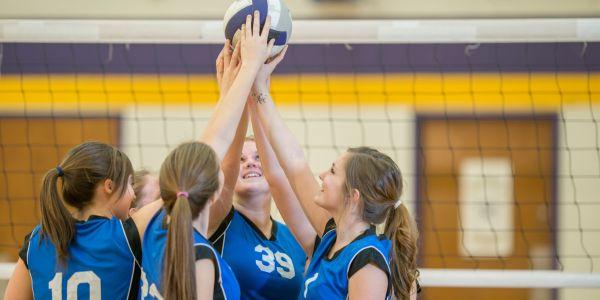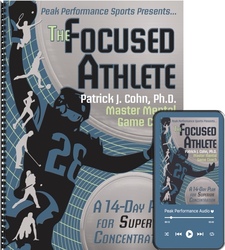
How do you improve your focus in competitions?
Most athletes show up to competitions and try to force themselves to focus throughout the competition. This focusing strategy rarely, if ever, works.
It is easy to focus early in competitions or when you are on top of your game.
However, when the pressure builds, distractions increase. Competing elements vie for your attention, such as crowd noise, fear of failure, previous mistakes, trash-talking opponents, the importance of the competition, high expectations, bad officiating, etc.
If you haven’t trained yourself to focus in pressure situations, you will underperform when it matters most.
At the 2024 NCAA Women’s Gymnastics Championships, LSU demonstrated the impact of a laser focus on performance. The LSU Tigers trailed Utah going into the final rotation. LSU responded by producing a record-setting performance on the beam to capture the program’s first NCAA title.
LSU senior Sierra Ballard was the first on the beam and nailed her routine with a career-high score of 9.95.
LSU senior Haleigh Bryant, who won the 2024 NCAA all-around individual title, heralded teammate Sierra Ballard’s ability to block out distractions.
BRYANT: “[Ballard] started us on beam on the best note we could possibly have. She’s so locked in, and she does it every single day.”
Being “locked in” is a skill requiring repetition.
You have the power to improve your competitive focus. Just as with any other skill, focus requires the following:
- Setting the goal and creating a detailed action plan for developing your competitive focus. For example, when and how will you work on improving your focus? When you have clear objectives for each training session, you will be able to direct your efforts to maximize building the mental skill of focusing.
- Learning to be process-oriented. Understand that developing focus is not achieved overnight. Focus is improved over time, which requires long-term repetition.
- Utilizing performance cues. Develop personalized performance cues, phrases, gestures, or mental images to help you focus or refocus to perform your best during competitions.
- Practicing staying present in the moment during training sessions. Staying present means focusing on the task at hand. As you improve your focus in training sessions, you will feel more comfortable with your ability to focus during competitions.
- Visualize competing with a laser focus. Daily visualization will help you develop your competitive focus faster.
- Use breathing techniques to ground yourself in the moment. Deep breathing helps you manage stress and anxiety and promotes optimal concentration.
- Reflect on your progress and learn from each competition. Evaluating your level of focus and problem areas during a competition provides valuable feedback on what you are doing well and what you need to improve.
You work hard to perform at a high level in competition. However, it is important to remember that being your best requires honing your mental and physical skills to the best of your ability.
Just as performance cues can remind you of key technical aspects of mechanics, you can utilize performance cues to remind yourself to focus.
Create a personal performance cue, such as saying the word “focus” or tapping your thigh to remind yourself to focus.
Use these performance cues consistently through training sessions to build your ability to “lock in” during competitions.
Related Sports Psychology Articles
- How to Refocus After Making Mistakes
- How to Refocus in Competition After a Mistake
- Focused Training and Mindset Equals Success

The Focused Athlete (Digital Download)
“The Focused Athlete” audio and workbook program helps you or your athletes overcome distractions and sharpen your concentration during competition. You learn how to get locked in during practice and competition so you can improve and perform better.
“First, I would like to thank you for the help given to me through your programs, ‘The Confident Athlete’ and ‘The Focused Athlete.’ I have made tremendous sacrifices though all these years to become a top Olympic Trap shooter but something was missing. This missing part was with my mental game. My scores increased tremendously in record time and others said that I was a different shooter.“
~Marios Kapodistria
